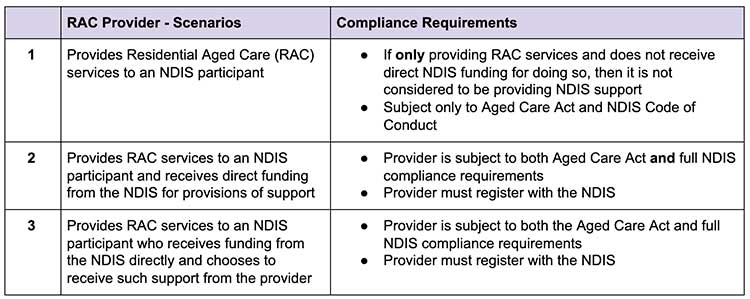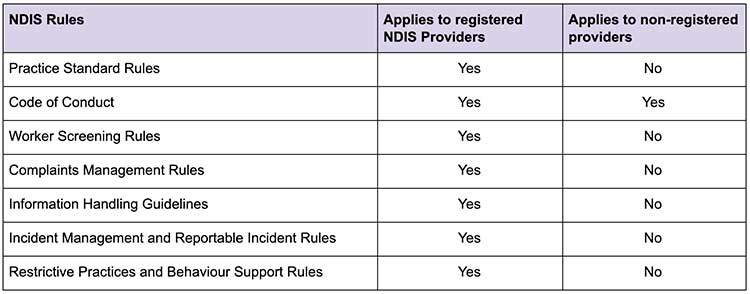The NDIS Commission is currently working in collaboration with Commonwealth agencies to establish compliance frameworks for Residential Aged Care (RAC) providers who are supporting NDIS participants.
Under the new regulations , it will become mandatory for these providers to register with the NDIS Commission starting from 1 December 2020. This mandatory registration was deferred by 5 months in response to the significant pressure faced by the aged care sector in light of the ongoing COVID-19 pandemic.
For the time being, RAC providers supporting NDIS participants are subject to both the NDIS Code of Conduct and Aged Care regulations.
It is crucial for providers to review the types of services they are providing and to clearly identify funding sources in order to establish the respective compliance requirements. We’ll take a closer look at the current and future dual compliance requirements affecting these providers.
RAC Providers: Not Registered with the NDIS
RAC providers who are not registered NDIS providers are subject to the NDIS Code of Conduct. With regard to handling complaints, the NDIS Commission will work alongside aged care regulatory bodies. These providers will still be subject to existing regulations under the Aged Care Act 1997.
RAC Providers: Registered with the NDIS
Providers who meet this criteria may need to balance obligations under both regimes. The compliance requirements under the NDIS generally apply in cases where the provider is being specifically funded to provide NDIS support and services to an NDIS participant
As the overlapping regulations can be somewhat confusing, the table below (developed by Maddocks) helps to clarify some of the requirements according to each provider’s situation:

What are the NDIS Compliance Requirements?
Registered NDIS providers are bound to a series of Rules established under the NDIS Act. The table below outlines these key requirements and identifies which of them apply to registered and non-registered NDIS providers.

Improving Compliance Management
For aged care providers looking to provide services to NDIS clients, it is clearly a challenging process to meet the standards of two compliance systems, especially given their differences at the point of service delivery and mandatory compliance.
Taking into consideration these difficulties and the increasing dual compliance of such providers, Ausmed has built-in both the NDIS Practice Standards and the Aged Care Quality Standards into its training and compliance platform. The Ausmed LMS enables providers across Australia to easily track their compliance requirements in real-time and generate compliance reports broken down by each of the standards’ frameworks.
In light of the complexity of compliance needs facing aged care providers, Ausmed is committed to building a platform that caters to these unique needs and continues to work with organisations across Australia to improve organisational compliance across the health, aged care, disability and community sectors.



